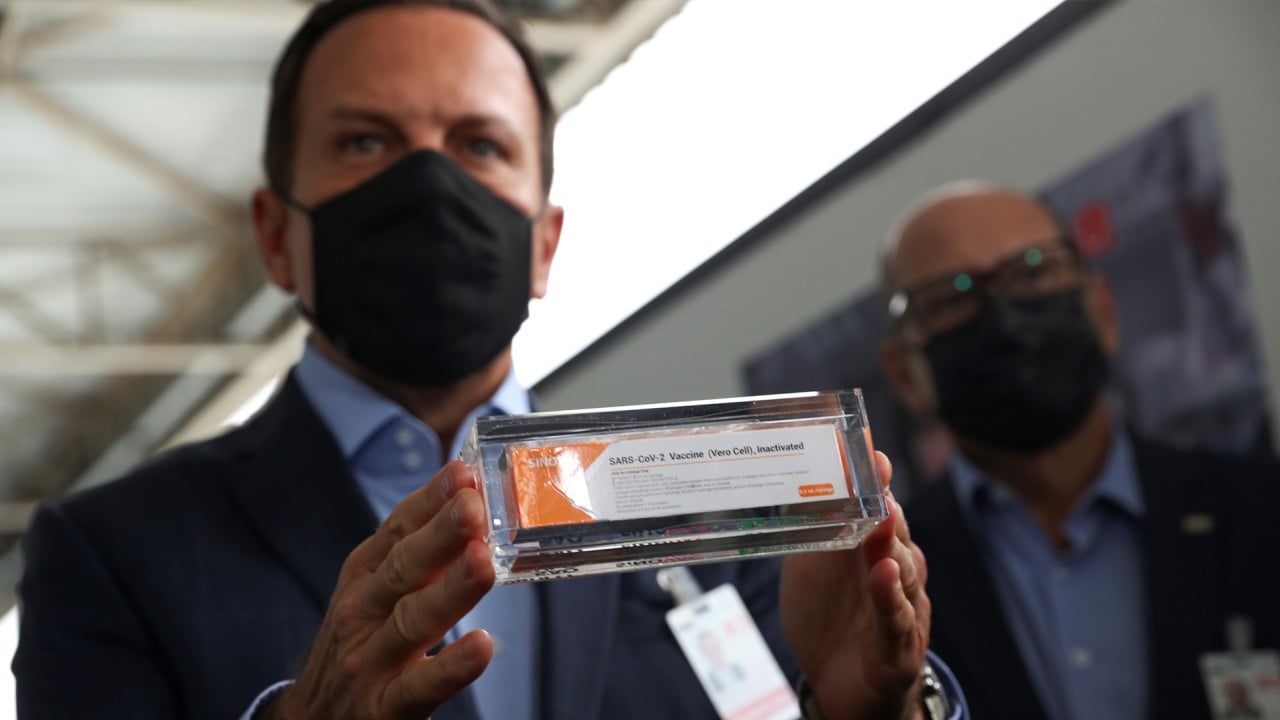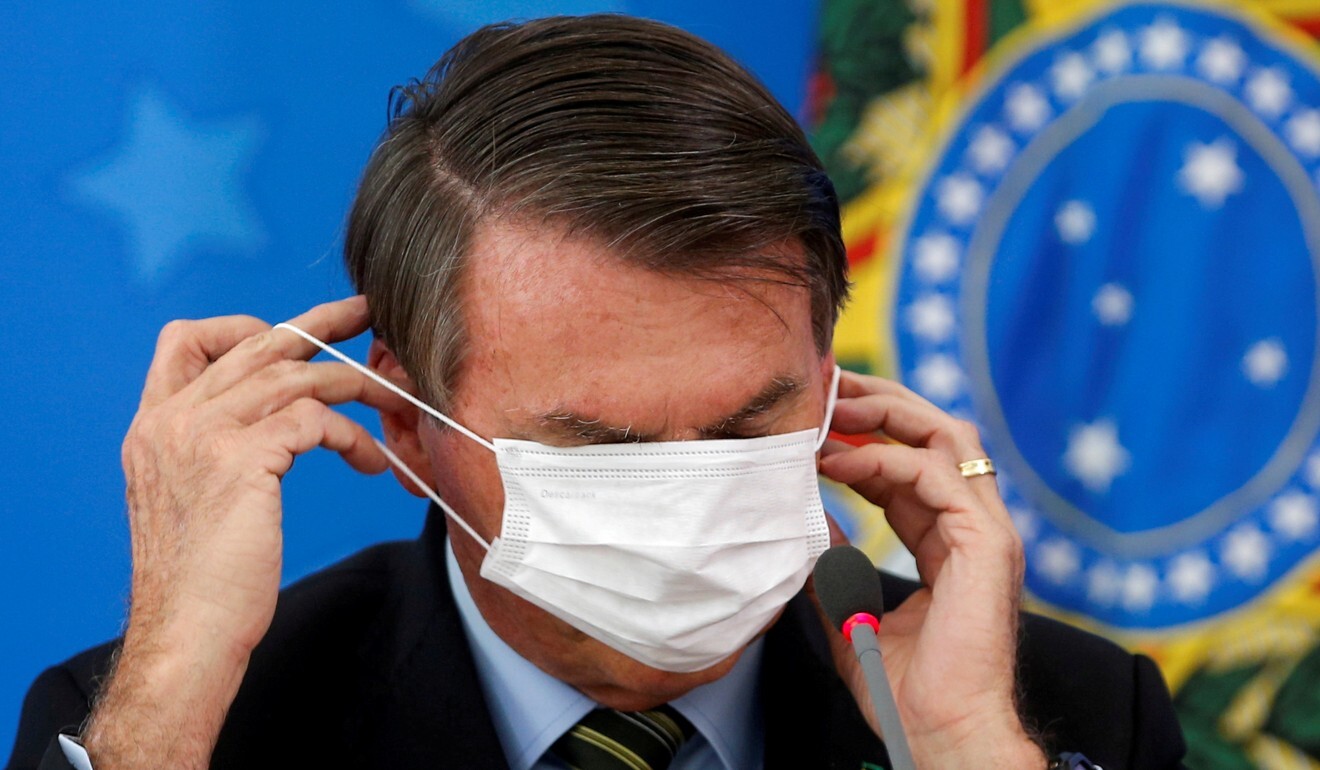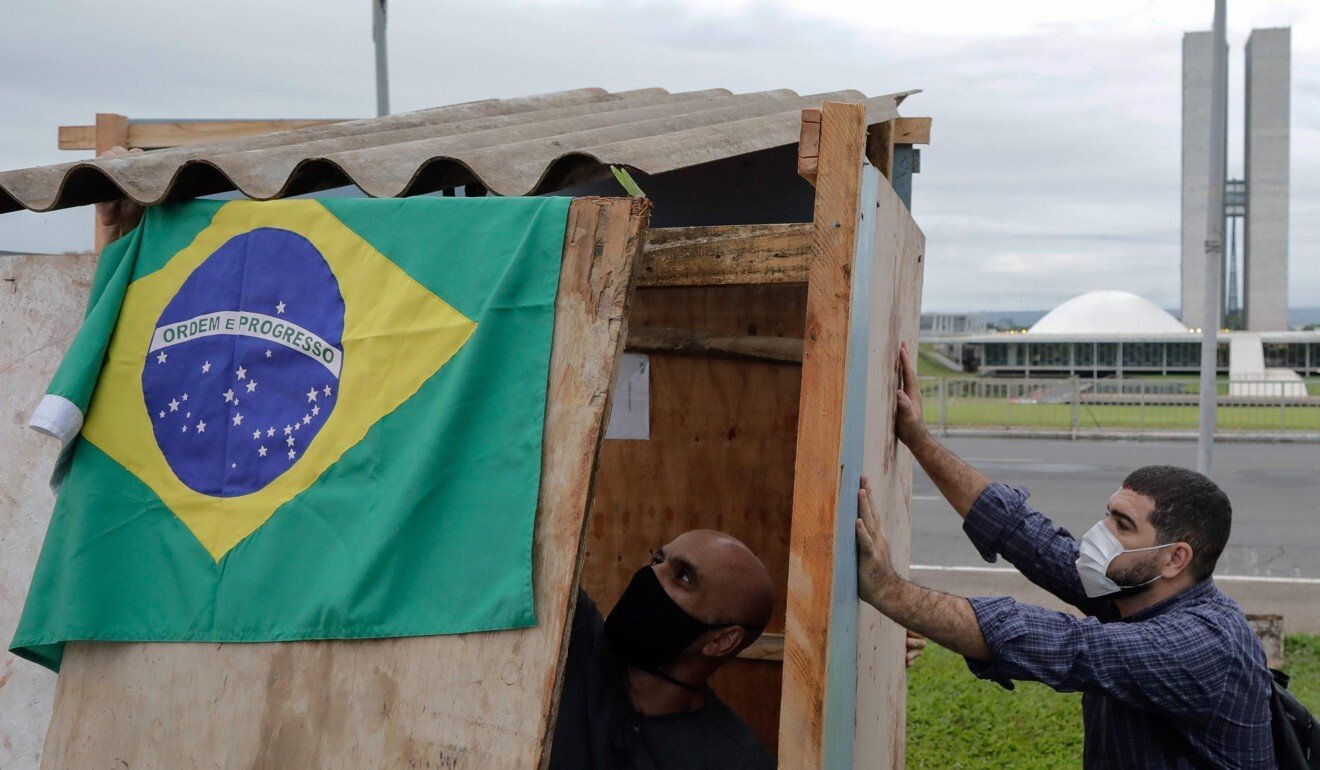
China-made coronavirus vaccine at heart of political showdown in Brazil
- Ongoing clash between President Jair Bolsonaro and the mayor of Sao Paulo over the Sinovac vaccine threatens immunisation roll-out
- Disagreements over which vaccines to provide the Brazilian population have been brewing since October
A showdown has been brewing since October, when Bolsonaro vetoed a deal between the health ministry and Doria’s Sao Paulo government for the purchase of 46 million doses of CoronaVac. He went on to equate it with “death and disablement” and said he would not include it in the country’s national immunisation programme.

01:36
First doses of China’s CoronaVac Covid-19 vaccine land in Brazil
Known as the “Trump of the Tropics”, Bolsonaro has also refused to have a Covid-19 shot and downplayed the epidemic’s severity.
At the same time, the Sao Paulo-based Butantan Institute has almost completed Phase 3 trials of the Chinese-made vaccine and cooperated with Doria to build the necessary infrastructure for mass production.
Brazil’s Covid-19 crisis has lurched from bad to worse. The country is experiencing the second-deadliest outbreak after the US, with more than 6.7 million cases and 179,000 deaths. Several state governors, including Doria, have criticised the federal immunisation plan for not securing a diverse enough supply of vaccines.
Pressure on Bolsonaro is also building as other countries in the region try to build up their own vaccine supplies. Dimas Covas, head of the Butantan Institute, said in August that he was in talks with Argentina, Colombia and the Pan-American Health Organisation to supply CoronaVac.
On Thursday, Covas said the number of interested countries had grown to include Peru, Uruguay, Paraguay and Honduras. Speaking at the same conference, Doria said 11 Brazilian states had contacted Butantan seeking CoronaVac.

Doria said on Monday that the statewide roll-out of the vaccine would begin on January 25, with 18 million doses to be distributed in total. First to receive the vaccine will be vulnerable groups such as health professionals and Indigenous peoples, followed by anyone over the age of 60.
None of this will be possible, however, without the approval of Brazil’s health regulator Anvisa. Just hours after Doria’s announcement, Anvisa expressed surprise and concern that the date chosen invalidated its ongoing evaluation of the vaccine.
Anvisa also noted there were still two roadblocks before the vaccine could be approved for emergency use. A review of the factory in China where the vaccine will be made was still under way, and the final results of the Butantan Institute’s Phase 3 trials had yet to be submitted.
Brazil plans to vaccinate entire population of 212 million against Covid-19 next year
Health minister and Bolsonaro ally Eduardo Pazuello said on Tuesday – during a meeting with Brazil’s state governors – that Anvisa needed around 60 days to approve a vaccine and that the first in line was AstraZeneca’s. This would make Doria’s announced date unattainable.
Doria slammed Pazuello’s remarks, saying the federal government had an ideological and political opposition to CoronaVac. In response, Pazuello assured the governors the federal government would purchase any reasonably priced vaccine approved by Anvisa.

In an interview with CNN Brazil the following day, Pazuello said that if the federal government closed a deal with US pharmaceutical company Pfizer, emergency use of its vaccine could start as early as December.
Thousands of people have received the CoronaVac shot in China, where the vaccine has emergency use authorisation.
Doria said the final data from the Phase 3 clinical trials would be submitted on Tuesday, and that Anvisa had promised a decision within 30 days.
Throughout the spat between Doria and Bolsonaro, Anvisa has reaffirmed its commitment to evaluating vaccines based on scientific rather than political criteria.
Doria has questioned Anvisa’s independence several times, saying on Wednesday the agency should not be held hostage by the interests of the federal government, the president’s office or an ideology.
Brazil spat over China vaccine is more about politics than health policy
Bolsonaro, a former army captain, nominated retired lieutenant-colonel Jorge Kormann to the Anvisa board last month. If the appointment passes the Senate, three of Anvisa’s five directors will be Bolsonaro allies, increasing the chances of a CoronaVac boycott.
Kormann, currently working at the health ministry under Pazuello, has no prior experience in medicine or vaccines but is expected to lead the agency’s unit in charge of approving vaccines. His appointment has been opposed by the Anvisa workers’ union.
Brazil, which has the world’s fifth-largest population, needs more than 400 million doses if the government is to fulfil its promise to vaccinate the entire population by the end of next year.
On Thursday, the health ministry’s second-most senior official Elcio Franco said Pfizer and CoronaVac were “on the same level” and awaiting approval from Anvisa. However, the ministry has not yet said how many CoronaVac doses will be rolled out.

